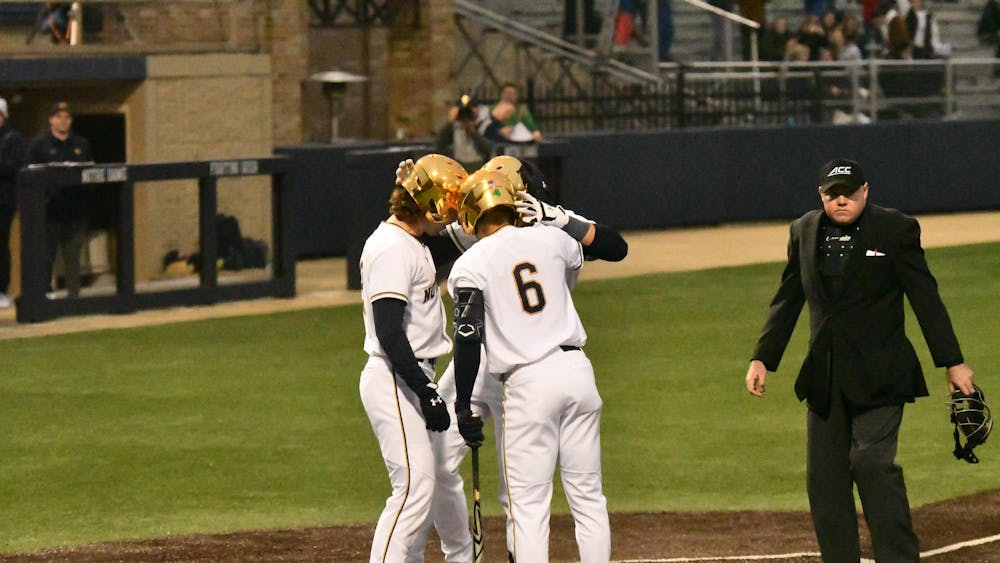Unrelenting belief marks one of the extraordinary paradoxes of human psychology. History's strangest narratives arguably revolve around overzealous faith in the most implausible phenomena. Cults, astrology, fake news and pseudoscience withstand the tests of time, devouring the credulity of society through ever-changing media and informational sources. Such a tendency now looms so largely that brilliant minds dedicate their careers to extensively researching defense mechanisms against it, a field better known as “informational literacy.”
But in spite of this reprisal fueled by journalists, scientists and religious leaders vying to save their integrity and career, oftentimes our pleasure found in believing the wildly improbable far outweighs our fear of it. The success of nearly every film and television series depends on our almost reckless devotion to protagonists that we insist emerge from ridiculous situations unscathed, against all odds.
As we find ourselves in low-stakes situations such as these, our heart grows heedlessly invested in the underdog. When our mind and soul need not worry about the ethical or ideological consequences of being proven wrong, our faith gravitates toward the very people that have no business being right.
Overnight sports sensations like Chicago Cubs starting pitcher Alec Mills prove no exception. Mills began his incredible climb to stardom as a walk-on at the University of Tennessee at Martin. During an otherwise normal team practice, he approached the coaching staff and requested a tryout. A dominant tenure in his college rotation earned him a 22nd round draft selection in 2012. He ascended the minor league ranks with ease, and he emerged from a battle with Tommy John with a dominant sinker.
Mills entered the majors with a four-seam fastball averaging 90 miles per hour. In an era unswervingly consumed by intensive velocity development, the figure looks laughable next to the names of flamethrowers Jordan Hicks and Aroldis Chapman. In only his fifteenth major-league start last weekend, however, Mills' arsenal of off-speed pitches spoke for itself.
Needless to say, Mills' meager five strikeouts and 114 pitches against a lackluster Milwaukee Brewers offense will not be remembered as an overwhelming dominant performance, nor even a flawless one. But the blend of sheer random chance, pitch design, happenstance and control forced outs at every turn. A quiet, goggle-donning rookie epitomized the late Greg Maddux in just the right moment, securing the most improbable of no-hitters as he embraced catcher Vic Caratini.
As I watched Mills punctuate his legacy in baseball fanfare, I expected to spread the news with the euphoria of a baseball fan relentlessly placing his faith in the underdog. I expected to enjoy it. Like my absolutely awful case of Sunday scaries, I never did.
Perhaps fear of the inevitable got the best of me. Esteemed analysts across Major League Baseball advocate against performances like that of Mills, and their rationale continues to gain rapid traction. Commonly referred to as "bull-penning," the idea seeks to eliminate the role of starting pitchers entirely, instead sending an array of relief pitchers to the mound. Under this concept, managers would limit the use of each pitcher by the number of batters faced, the hitting teams' spot in the batting order, and the favorable individual matchups between pitchers and hitters. Statisticians who support bull-penning point to hitters' drastic increase in success against starting pitchers in their third time through the batting order.
Normally a keen proponent of letting sports statistics run their course, I would seriously hate to remember Alec Mills as one of the last complete game pitchers of my generation. Without a doubt, bull-penning stands as a well-defended, alluring idea in theory. But for a game struggling to salvage the luster of America's past time, Alec Mills' narrative should make its value trivial in practice. Baseball needs more stories like Alec Mills.
After all, our untamed, reckless faith depends on them.













